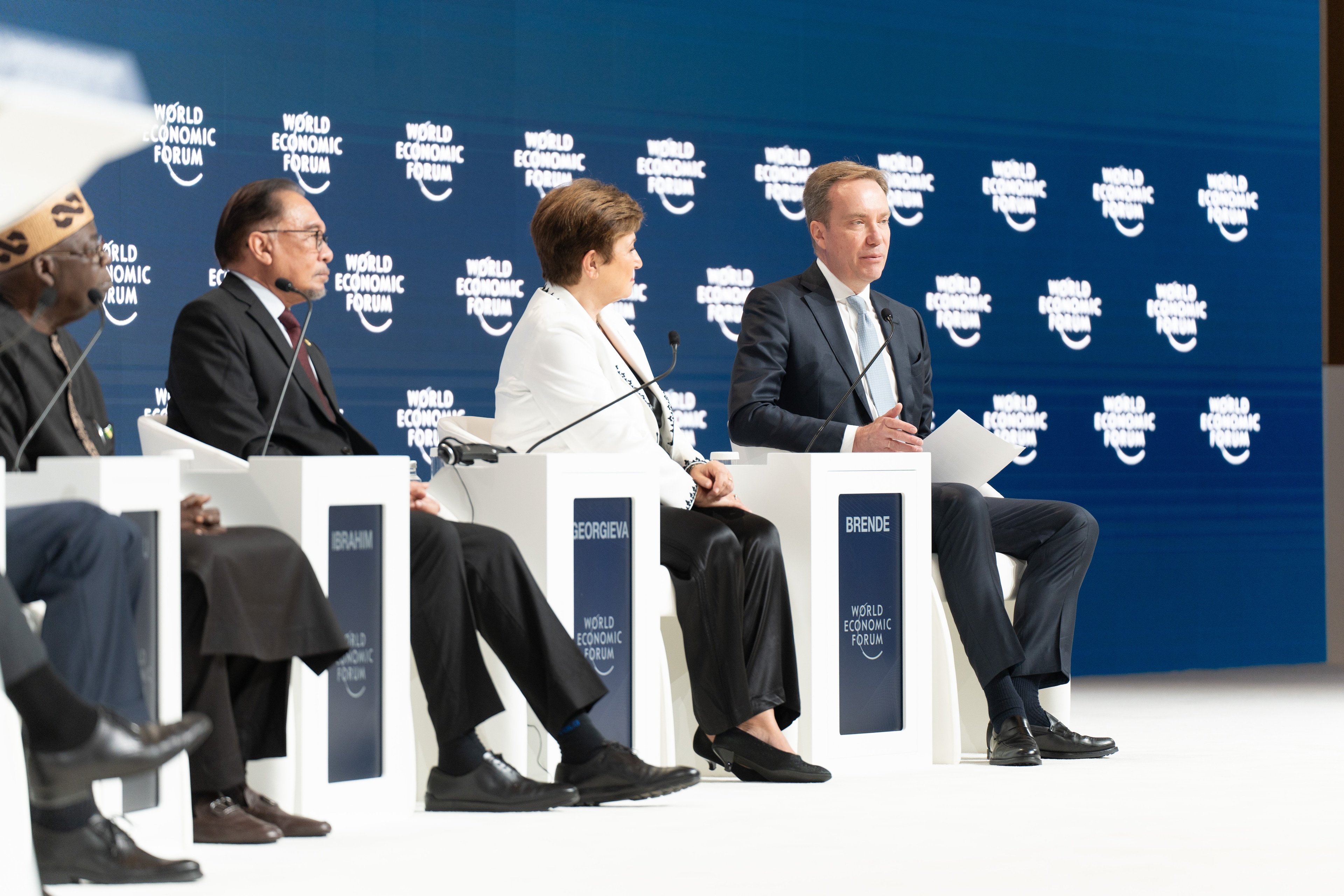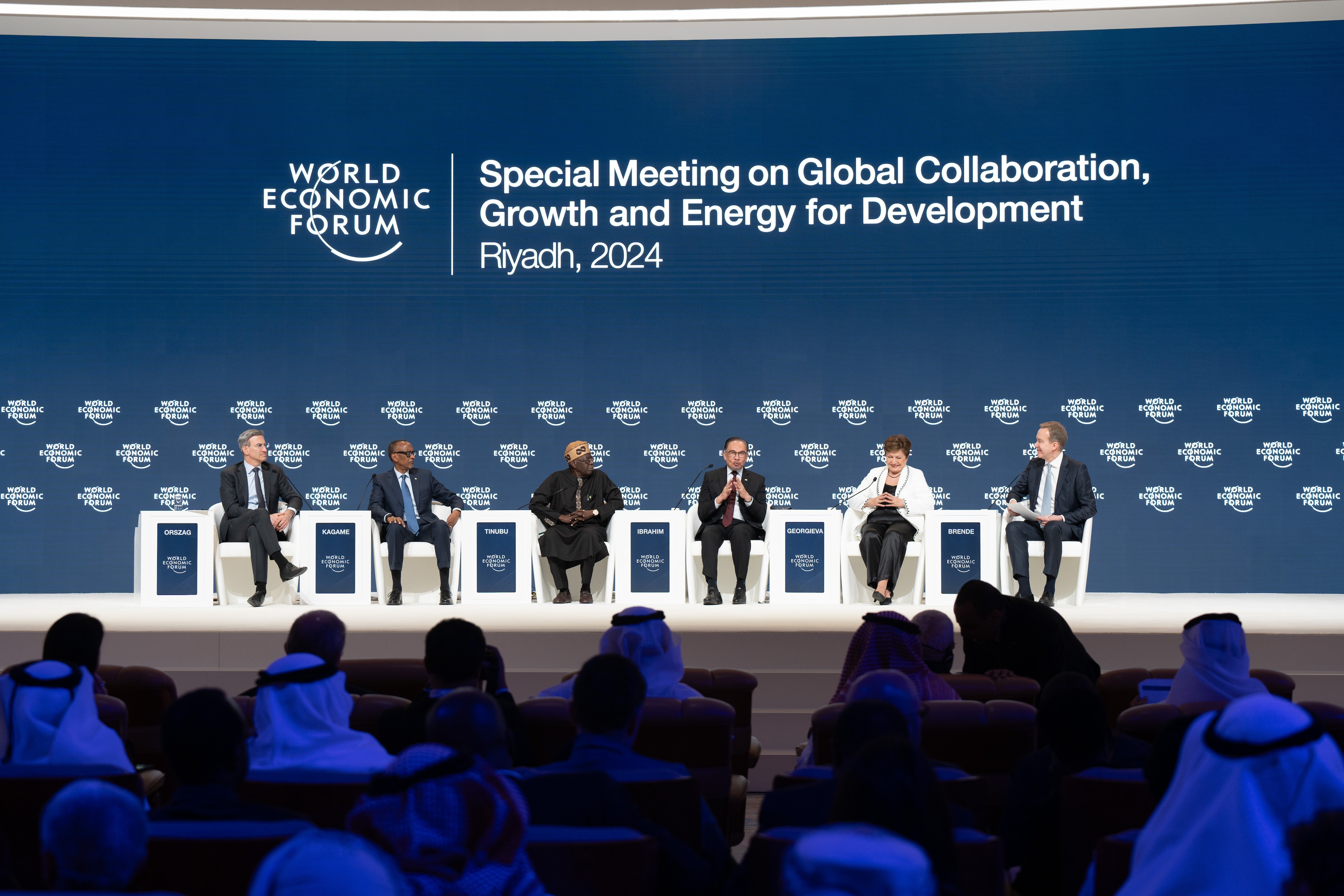How sustainability-driven enterprises can build a better future

Organizations need to get ahead of the curve in a sustainability-driven business environment. Image: Getty Images/iStockphoto.

Get involved with our crowdsourced digital platform to deliver impact at scale
Stay up to date:
Davos Agenda
Listen to the article
- Businesses need to play a role in driving societal, environmental and technological change.
- Purpose-driven organizations can drive impact in a business environment focused on sustainability.
- This will help them stand out from the competition and attract like-minded clients, investors and employees.
Today’s business landscapes are being defined and transformed by climate change, digital transformation, changing expectations for the role of corporations and responsibilities towards communities and collective wellbeing. Businesses have increasingly recognized their growing obligations to do greater good. To turn their commitment into actions, businesses must constantly shape new strategies, build trust within the community it operates, and get ahead of the curve in a sustainability-driven business environment.
From commitment to concrete actions
The concept of “Triple Bottom Line” was first coined by John Elkington in 1990s, who proposed that companies produce three bottom-line reports: People, Profit and Planet. This type of thinking has gained popularity within business communities and has led to a number of different initiatives, such as the development of the Sustainability Accounting Standards Board (SASB), Stakeholder Capitalism Metrics (SCM) framework, and increased engagement in the realms of people and planet. Among those, B Lab Global has had successes in turning the Triple Bottom Line into practice, certifying more than 6,000 businesses that meet social sustainability and environmental performance standards.
Stakeholders nowadays are pressing organizations to go beyond expectations, imagine a better way to do business, address environmental, social and governance (ESG) concerns concretely and transparently, and to set goals and report progress for business sustainability. Consumers increasingly prefer products they view as sustainable across the entire value chain. A recent Deloitte study on sustainability in consumer business showed that 67% of participants were willing to pay up to 41% more for products if they were sustainable, and that inclination was higher among younger age groups.
Employees are becoming more concerned with the ESG activities of their employers across all geographies. According to the Deloitte Global 2022 Gen Z & Millennial Survey, Gen Zs and Millennials are willing to turn down jobs and assignments which don’t align with their values, with nearly two in five saying they have rejected a job based on their personal ethics. More activism-oriented investors are looking for organizations to instill purpose at the core of their operations, caring for issues that concern their employees, communities, industries, and the world at large.
How is the World Economic Forum helping companies track their positive contributions towards achieving the Sustainable Development Goals?
Businesses that go beyond the corporate and business sphere (see Figure 1 below) and compete to be the best for the world have a winning strategy as they are more likely to stand out from the competition, generate positive influence and attract like-minded partners. It can help win customers, attract, and retain talent, reduce the cost of communication, and minimize risks and potential reputational damage.
A 2021 Deloitte study on purpose-driven companies found that an integrated purpose strategy can provide organizations with a “purpose premium,” driving long-term value and creating competitive advantage. The study reveals that high-purpose businesses could double their market value four times faster, while achieving 6.4% higher return on equity. Also, 78% of people would prefer to work for a purpose-driven company and about three in four millennial workers would take a pay cut to work at an environmentally responsible company.

Staying ahead of the curve through strategic foresight
When the expectations and the business environment change, leaders must think ahead to adapt. Business sustainability has a diversity of topics and implications, each with respective fields of actions. Critical challenges range from environmental, social, economic and technology aspects, which are linked together in a complex system of interdependencies. Managing business sustainability and embedding it into the core of a company’s strategy becomes the most pressing issue to gain or keep competitive advantage.
The first step towards navigating a sustainability-driven business environment is to understand what sustainability means for their organization and to formulate a strategy framework by examining the emerging topics in their industries, considering plausible future scenarios, and evaluating the company’s footprint on society and the environment. While our future is characterized by uncertainty, complexity and divergence, strategic foresight provides a level of agility and comfort, creates a roadmap where businesses can develop a long-term sustainability-oriented perspective and build holistic management practices.
Setting an example
We believe changes start within. Deloitte launched WorldClimate to commit to long-term emissions reduction targets to achieve net-zero emissions by 2030, and considers sustainability in its business decisions. Our commitment is reflected in three ways: actions we take; actions we inspire our people to take; and actions we take with clients and others in our ecosystem. By collaborating with clients, alliance partners, suppliers and non-profit organizations, we drive responsible climate choices together.
Our WorldClass ambition is to empower 100 million people in our communities with education and career-building opportunities by 2030. The programme helps connect people around the world with resources such as job training or skills that bridge digital gaps, all to expand opportunity.
Don't miss any update on this topic
Create a free account and access your personalized content collection with our latest publications and analyses.
License and Republishing
World Economic Forum articles may be republished in accordance with the Creative Commons Attribution-NonCommercial-NoDerivatives 4.0 International Public License, and in accordance with our Terms of Use.
The views expressed in this article are those of the author alone and not the World Economic Forum.
Related topics:
The Agenda Weekly
A weekly update of the most important issues driving the global agenda
You can unsubscribe at any time using the link in our emails. For more details, review our privacy policy.
More on Forum InstitutionalSee all
Gayle Markovitz
April 28, 2024
Gayle Markovitz
April 27, 2024
Mirek Dušek and Maroun Kairouz
April 27, 2024
Kate Whiting
April 26, 2024
Spencer Feingold and Gayle Markovitz
April 19, 2024
Kate Whiting
April 17, 2024






